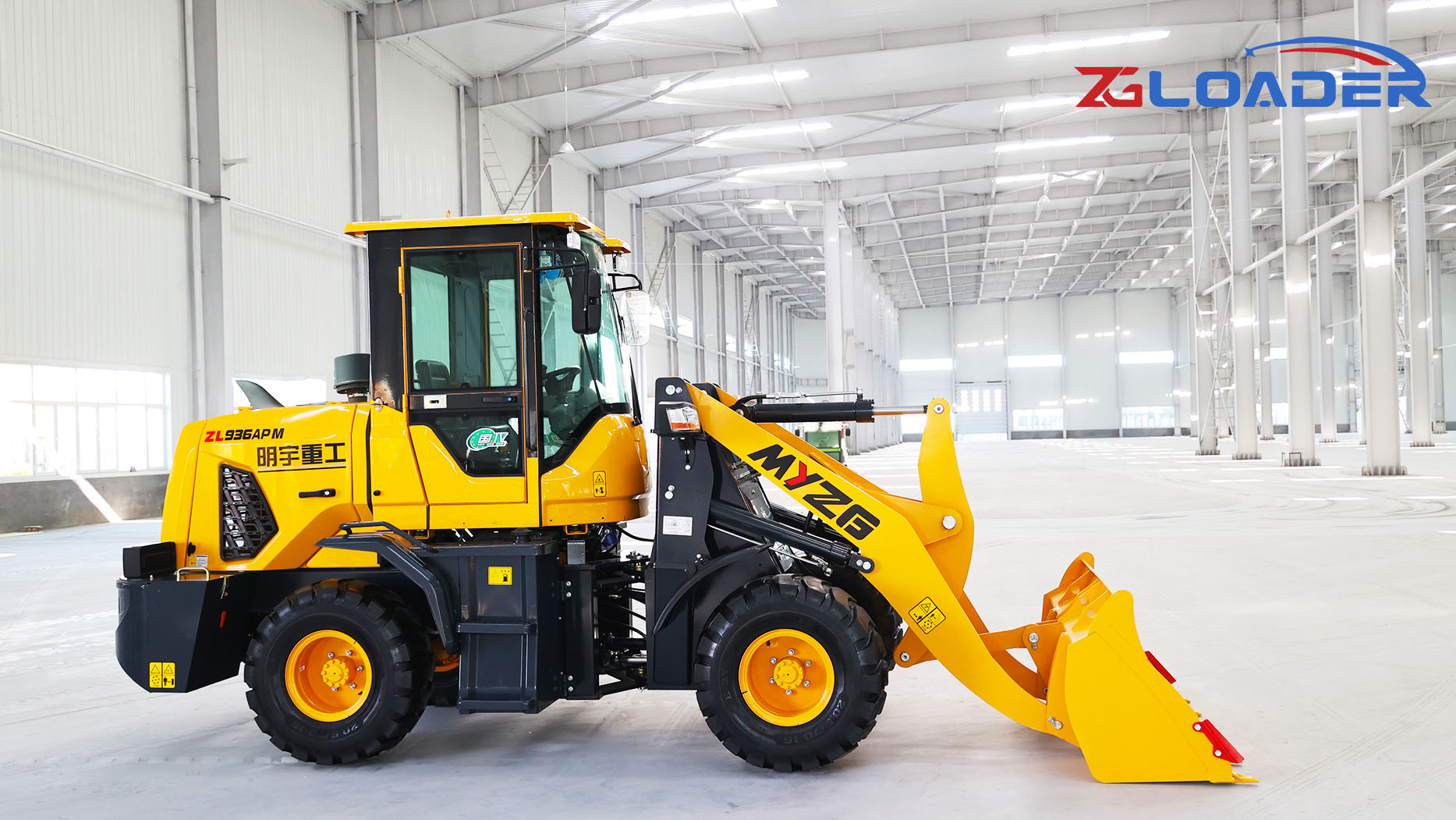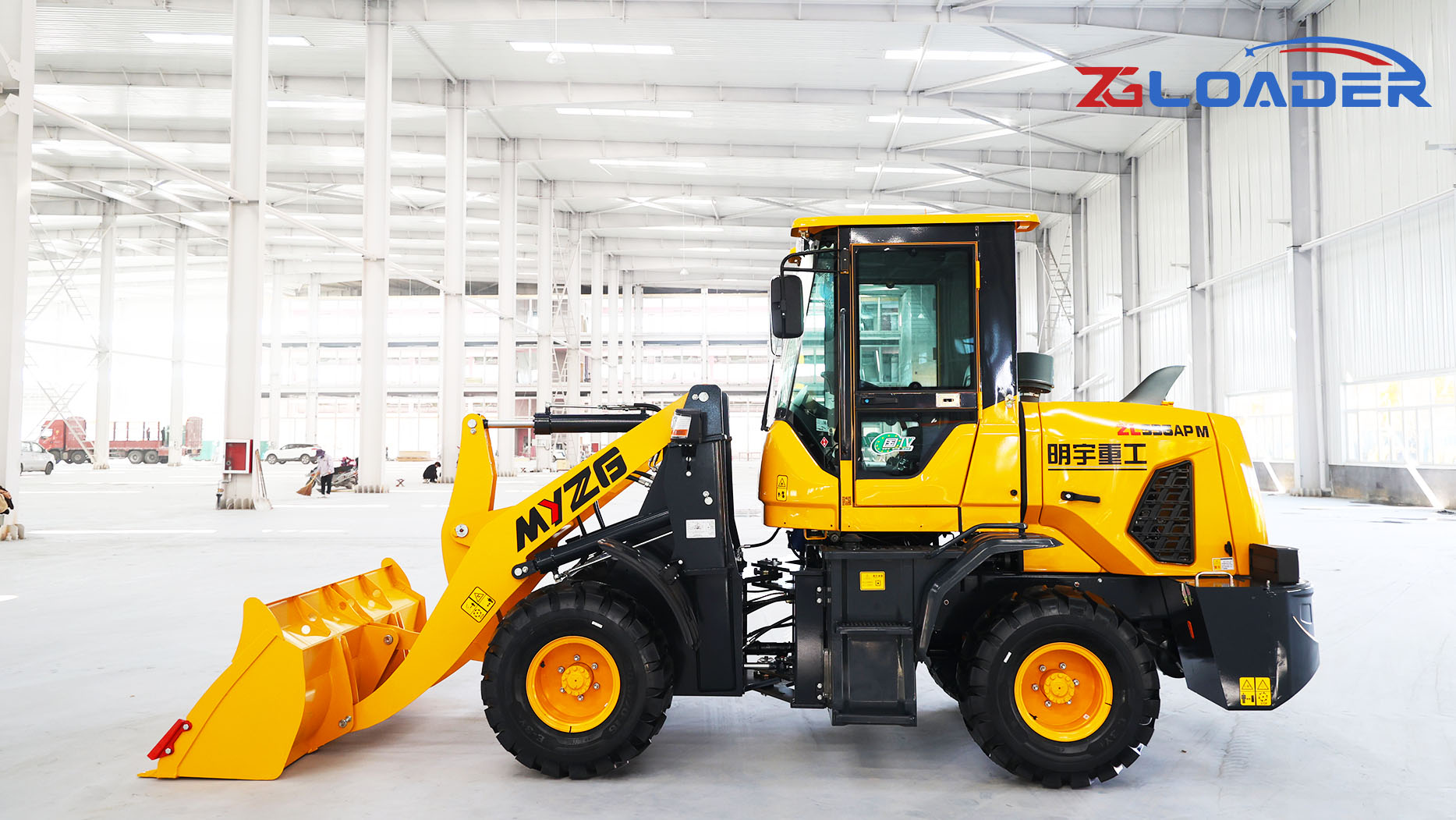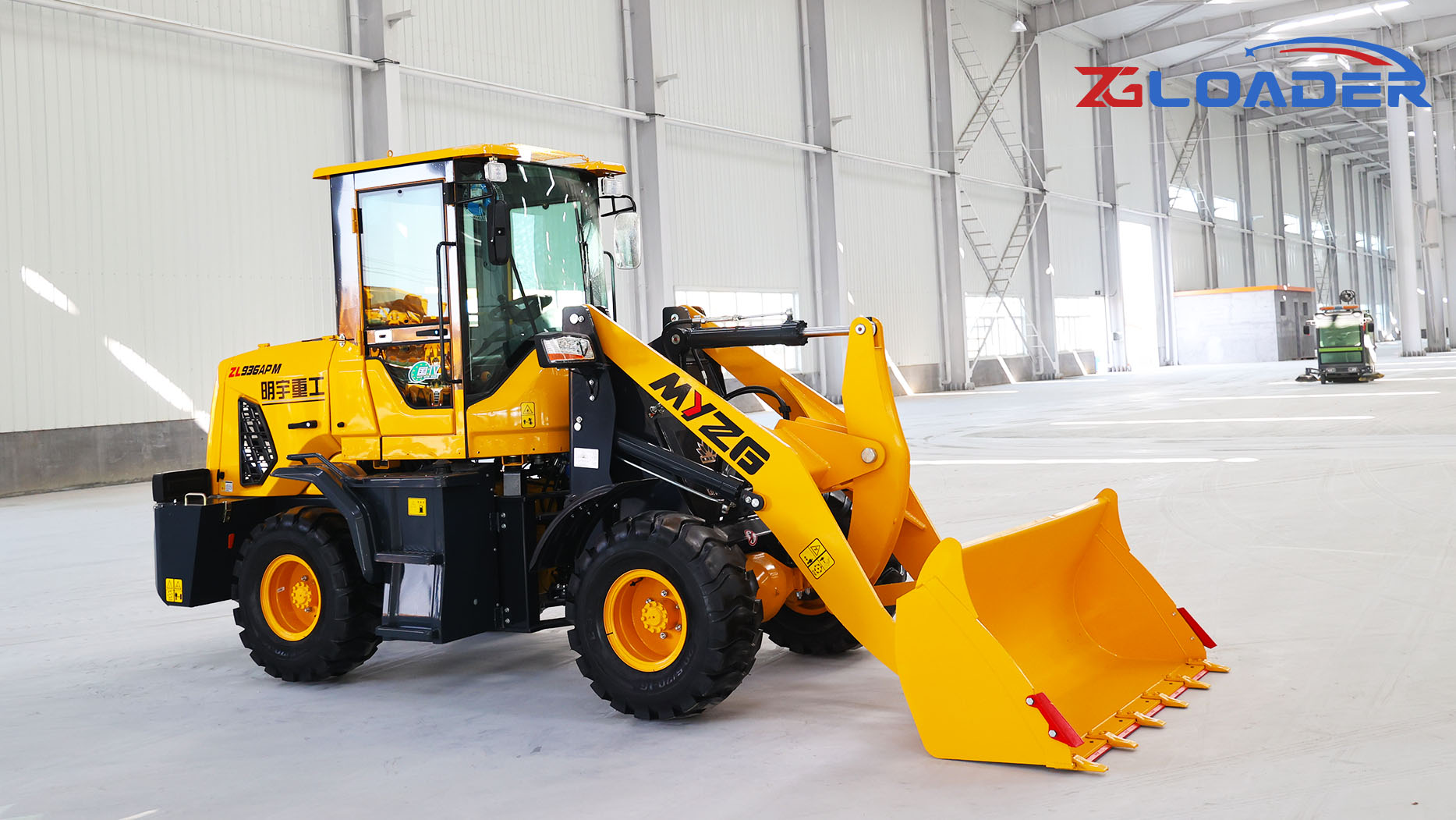Wheel Loader Hydraulic Braking System Failure: Causes and Solutions
Wheel loaders are heavy-duty machines used in construction, mining, and material handling. Their hydraulic braking systems are critical for safe and efficient operation. However, these systems can experience failures, leading to safety hazards and operational disruptions. This article explores the common reasons behind hydraulic brake system failures in wheel loaders and discusses mitigation strategies.
1. Hydraulic Fluid Contamination
Water Ingress: Moisture contamination can lead to the formation of rust and sludge within the hydraulic system, obstructing fluid flow and damaging components. Water can enter the system through:
Leaking seals and hoses: Damaged seals and hoses allow moisture to seep in, particularly in wet or humid conditions.
Improper maintenance: Inadequate sealing of filler caps or improper fluid replacement procedures can introduce moisture into the system.
Contaminants: Dirt, debris, and other foreign particles can enter the hydraulic system through:
Unfiltered air during refilling: Contaminants can be drawn into the system during fluid refills if proper filtration is not used.
Damaged filters: Clogged or damaged filters fail to remove contaminants from the hydraulic fluid, leading to their accumulation in the system.
Oil Degradation: Over time, hydraulic fluid degrades due to oxidation, heat, and contamination. This degradation can lead to increased viscosity, reduced flow, and component wear.
2. Hydraulic Component Failure
Pumps: Hydraulic pumps are crucial components that generate the pressure required for braking. Failure can occur due to:
Wear and tear: Continuous operation leads to wear and tear of pump components, such as gears, vanes, and seals.
Cavitation: Insufficient fluid supply to the pump can cause cavitation, leading to erosion of internal components.
Overheating: Excessive heat generated during operation can damage pump seals and bearings.
Valves: Valves control the flow of hydraulic fluid to the brakes. Failure can occur due to:

Sticking or jamming: Valves can become stuck or jammed due to contamination or wear, preventing proper fluid flow.
Internal leaks: Internal leaks within valves can reduce system pressure and affect braking performance.
External leaks: External leaks at valve connections can lead to fluid loss and reduced system pressure.
Cylinders: Brake cylinders convert hydraulic pressure into mechanical force to actuate the brakes. Failure can occur due to:
Sealing issues: Damaged seals can cause internal leaks, reducing braking effectiveness.
Rod wear: Wear and tear on the cylinder rod can affect braking performance and lead to leaks.
Bore scoring: Scoring of the cylinder bore can cause piston movement to become erratic, affecting braking.
3. Brake System Components Failure
Brake Shoes and Drums/Rotors: Wear and tear of brake shoes and drums/rotors can lead to reduced braking effectiveness and increased stopping distances.
Brake Lines: Brake lines can become damaged due to:
Abrasion: Rubbing against other components or sharp edges can wear down the brake lines.
Corrosion: Corrosion can weaken the brake lines, increasing the risk of leaks and ruptures.
Bending: Excessive bending of the brake lines can cause stress fractures and leaks.
4. Electrical System Issues
Electrical Wiring Faults: Faulty wiring, such as short circuits, open circuits, or ground faults, can disrupt the electrical signals to the braking system, affecting brake performance.
Sensor Malfunction: Malfunction of sensors, such as brake pressure sensors or wheel speed sensors, can lead to incorrect readings and affect the operation of the braking system.
5. Operator Error
Improper Brake Application: Incorrect braking techniques, such as excessive braking or sudden braking, can increase wear and tear on the braking system and contribute to premature failure.
Overloading: Exceeding the load capacity of the wheel loader can overload the braking system and increase the risk of brake failure.
Preventing Hydraulic Brake System Failures
Regular Maintenance:
Fluid Checks and Changes: Regularly check and replace hydraulic fluid according to the manufacturer's recommendations. Use high-quality, compatible fluids.
Filter Replacement: Replace filters regularly to prevent contamination of the hydraulic fluid.
Visual Inspections: Conduct regular visual inspections of all components for signs of wear, tear, leaks, and damage.
Proper Operation:
Avoid harsh braking and excessive loading.
Use the brakes smoothly and progressively.
Follow proper operating procedures and safety guidelines.
Operator Training:
Train operators on proper braking techniques and the importance of safe operating practices.
Emphasize the importance of regular maintenance and inspections.
Component Replacement:
Replace worn or damaged components promptly, such as brake shoes, drums/rotors, hoses, and seals.
Use genuine OEM parts or high-quality aftermarket replacements.
Environmental Considerations:
Store and handle hydraulic fluids properly to prevent contamination.
Dispose of used fluids responsibly.
By implementing these preventive measures and addressing potential issues promptly, you can significantly improve the reliability and longevity of your wheel loader's hydraulic braking system, ensuring safe and efficient operation.
Post time:Jun.22.2022


